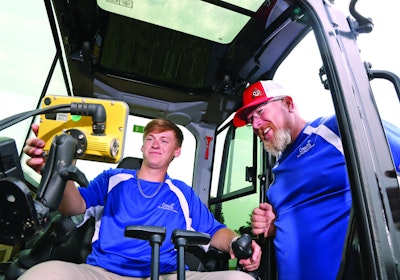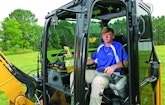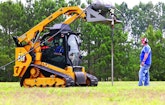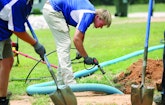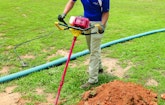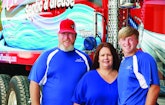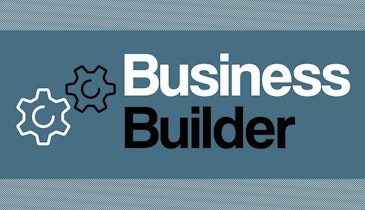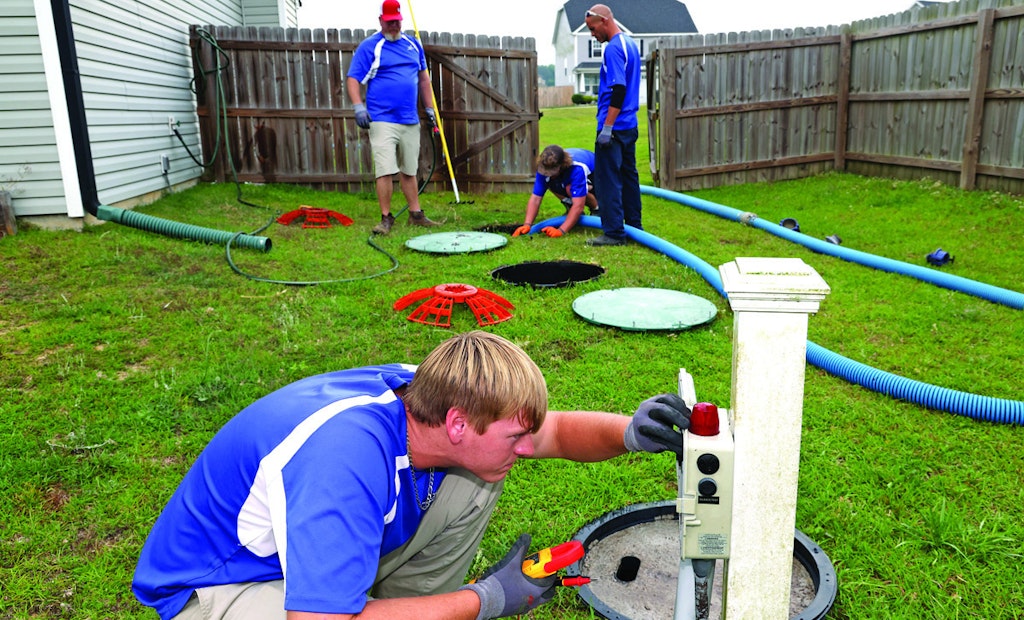
Hunter Creech checks the voltage at a SJE Rhombus NEX Series pump control panel as Stacy Creech and crew service and clean a home septic system.
A bad economic downturn rarely is good news for business owners.
But for entrepreneur Stacy Creech, the owner of Creech’s Plumbing in Wilson, North Carolina, the deep recession of 2009-10 provided an epiphany of sorts that forced him to rethink his one-dimensional business...
